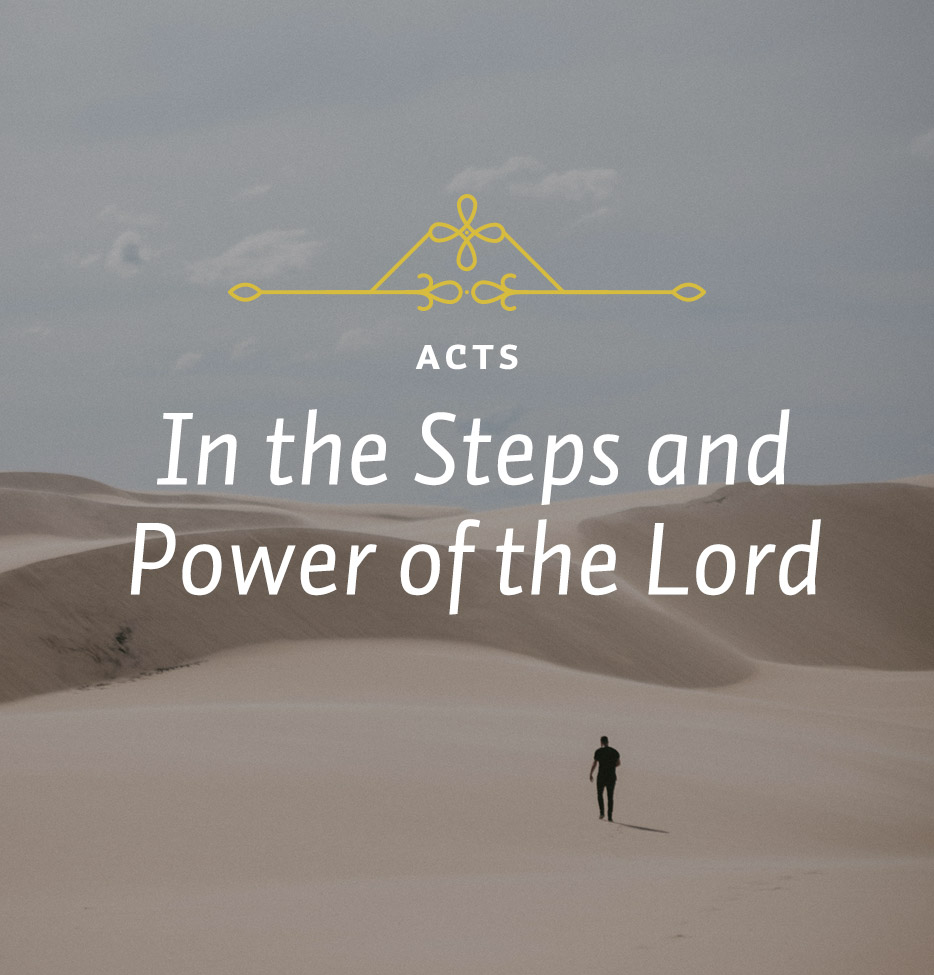What an unlikely person to be used in such a great way by Jesus Christ. Think of the major moments in Peter’s life thus far.
1. Peter’s calling to follow Jesus. Peter was a fisherman, and he had been fishing when Jesus first called him. Jesus saw him mending his nets and said to him, “Come, follow me.” I suppose that it was in response to a rather quizzical look on Peter’s face that Jesus then explained Himself, saying, “…..and I will make you fishers of men” (Matt. 4:19).
In Luke’s gospel there is a fuller account of that calling. In Matthew and Mark (Mark 1:17) we are told how he called Peter, saying, “Follow me.” But in Luke there is an expanded account that tells how Jesus did a miracle in causing Peter to catch a great number of fish. Peter was astonished by the miracle. He realized that it was not the proper time of day for catching fish and that the number was unusually large. This was a revelation of the power and the glory of Jesus. So Peter, overcome by this great revelation, responded by saying, “Go away from me, Lord; I am a sinful man” (Luke 5:8). He meant, “Why are you calling me? You are the holy One. I am just a fisherman, and a sinful one at that. I don’t deserve to be your disciple.”
Peter spoke truly. But of course, that is just what God uses: sinful men and women. If God did not use sinful men and sinful women, He could not use anybody. All of us are sinful.
It is not what we are or where we come from that is important. It is what God makes of us. So it was not Peter’s background that mattered. It was what Jesus chose to do through Peter. Later, when Paul came to write about God’s use of this procedure, he said,
Brothers, think of what you were when you were called. Not many of you were wise by human standards; not many were influential; not many were of noble birth. But God chose the foolish things of the world to shame the wise; God chose the weak things of the world to shame the strong. He chose the lowly things of the world and the despised things—and the things that are not—to nullify the things that are, so that no one may boast before him. (1 Cor. 1:26-29)
2. Peter’s great confession. If we run through the major events of Peter’s life, the next we come to is when Peter gave his confession of faith concerning Jesus Christ. Jesus had been teaching the disciples and had stopped to ask them who the people thought He was.
“Some say John the Baptist; others say Elijah; and still others, Jeremiah or one of the prophets,” they said. “But what about you?” Jesus asked. “Who do you say that I am?”
This made the question very personal. The text does not say that there was a moment of silence at this point, but I suppose there must have been. Until Peter—Peter, who was always the first to speak (and usually, foolishly)—said, “You are the Christ, the Son of the living God” (cf. Matt. 16:16). It was so unusual for Peter to get something right that Jesus had to stop and point out that Peter was actually right this time and that the reason he was right was that God had given him a special revelation.
Unfortunately, Peter, who had just had this marvelous insight, instead of being humbled by it, must have been saying to himself, “Why, that’s tremendous. And I want you to take notice of that, guys. The Holy Spirit spoke to me. I know who Jesus is.” That is why, when Jesus went on in the next breath to explain that He would have to go to Jerusalem to suffer and die and then rise again, Peter rebuked him, saying, “Never, Lord! This shall never happen to you” (v. 22).
This time Jesus had to reply, “Out of my sight, Satan! You are a stumbling block to me; you do not have in mind the things of God, but the things of men” (v. 23). He recognized that the one speaking through Peter now was not the Holy Spirit but Satan, trying to keep Him from the cross. What a day that was in Peter’s life. One moment he was the vehicle of God’s revelation, and the next a vehicle for Satan. Yet that was Peter! And that is what we are like, too. Or to use another example, we are like Elijah. One moment we are up on the mountain, calling down fire from heaven. The next we are down in the valley, saying, “Lord, let me die.” There are none stable but the Lord.






